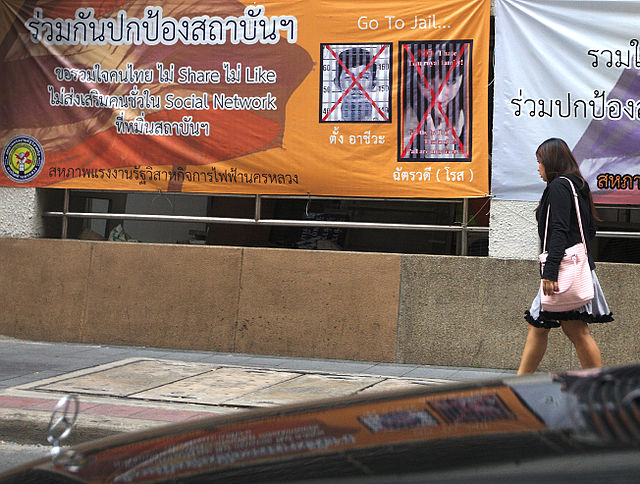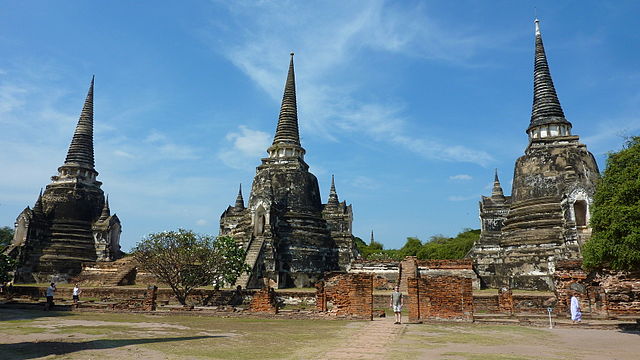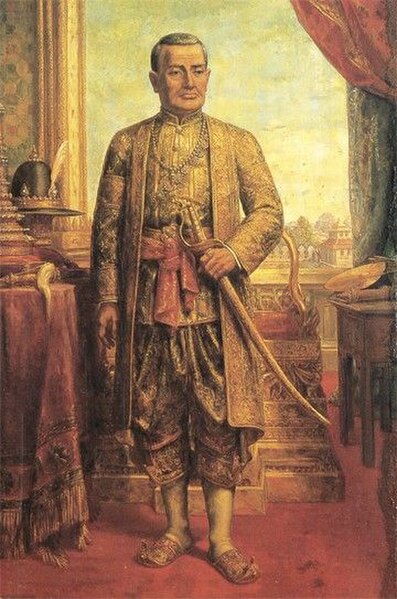In Thailand, lèse-majesté is a crime according to Section 112 of the Thai Criminal Code. It is illegal to defame, insult, or threaten the monarch of Thailand. Modern Thai lèse-majesté law has been on the statute books since 1908. Thailand is the only constitutional monarchy to have strengthened its lèse-majesté law since World War II. With penalties ranging from three to fifteen years imprisonment for each count, it has been described as the "world's harshest lèse majesté law" and "possibly the strictest criminal-defamation law anywhere". Its enforcement has been described as being "in the interest of the palace".
A banner in Bangkok warns readers that using social media to "like" or "share" anti-monarchist content could land them in prison. The banner asks people to "join together to protect the monarchy".
The late King Bhumibol Adulyadej was accorded an almost divine reverence, which still holds true today.
Order of prime minister Field Marshal Sarit Thanarat for summary execution of two men on lèse majesté charges in 1961
The monarchy of Thailand is the constitutional form of government of the Thailand. The king of Thailand is the head of state and head of the ruling Royal House of Chakri.
King Naresuan of Ayutthaya fought several wars against the Burmese to preserve Siamese independence.
Wat Phra Si Sanphet next to the king's palace was the most sacred temple in the kingdom of Ayutthaya.
Thongduang, later King Rama I of Siam, founded the Chakri dynasty in 1782.
King Prajadhipok signing the Constitution of Siam, 10 December 1932.







